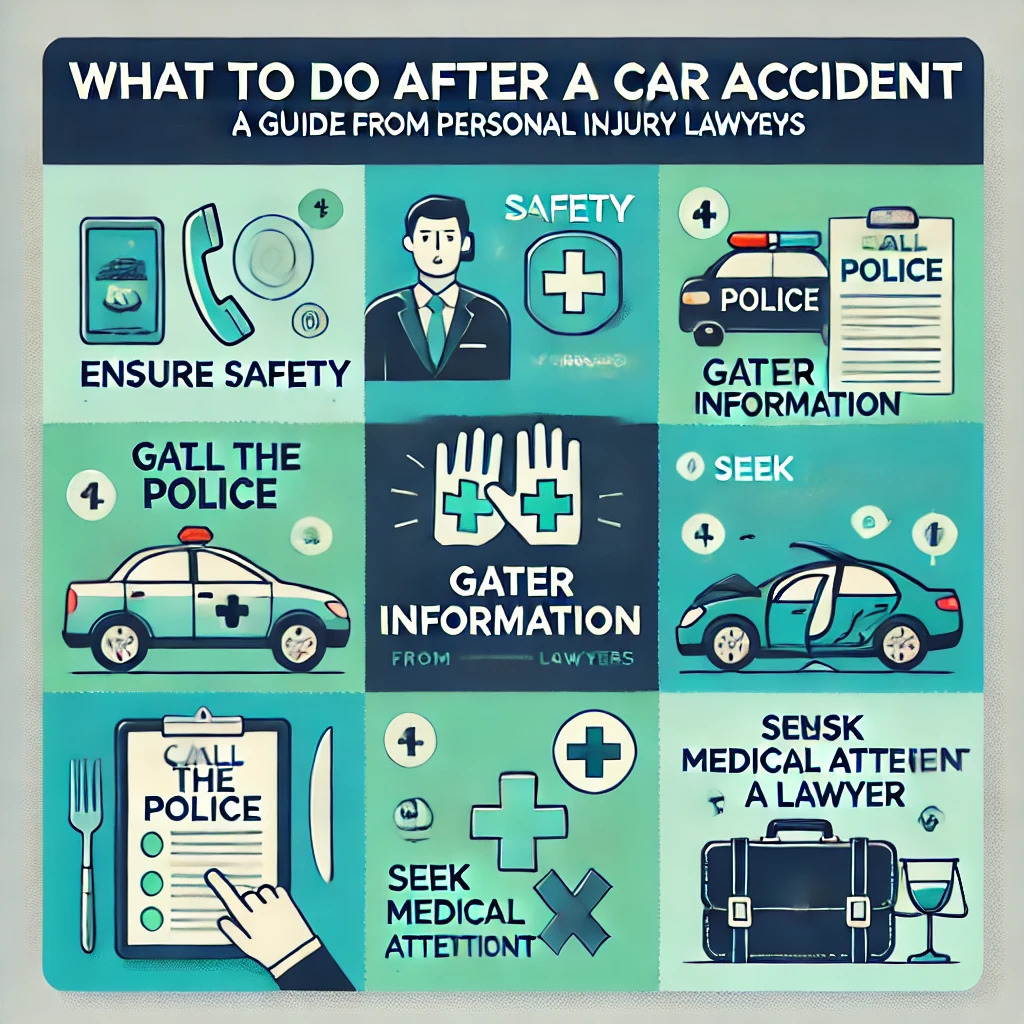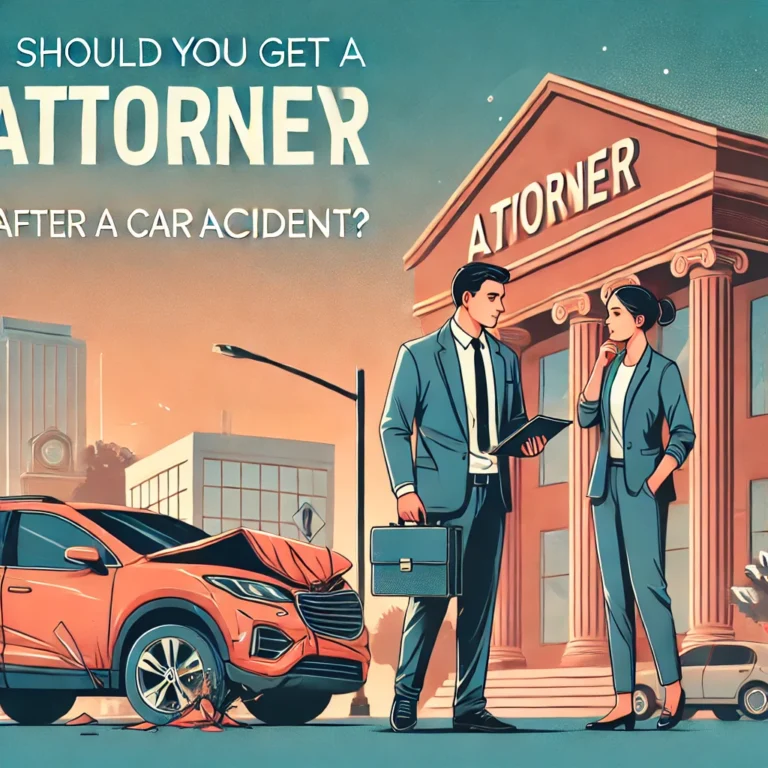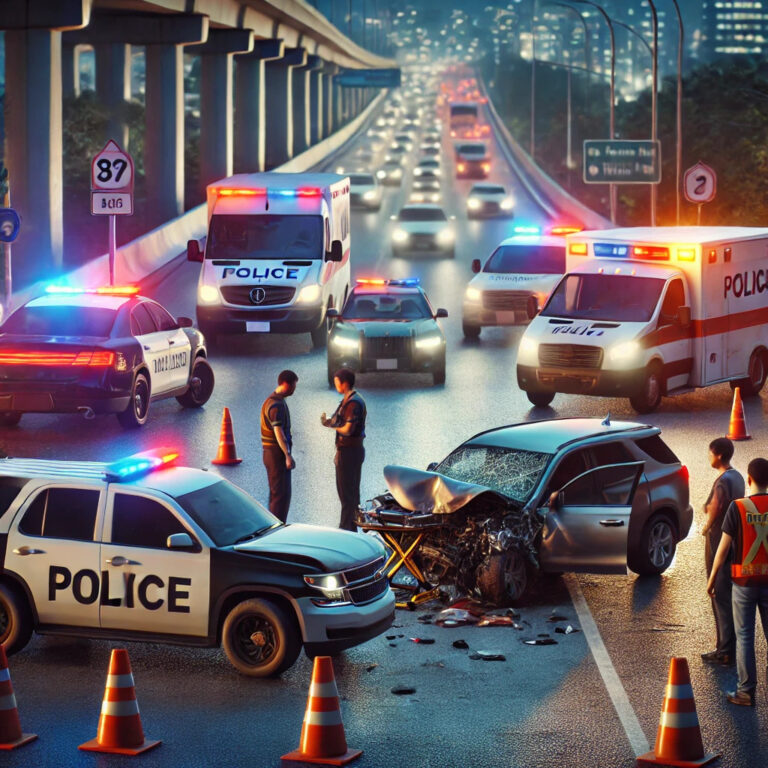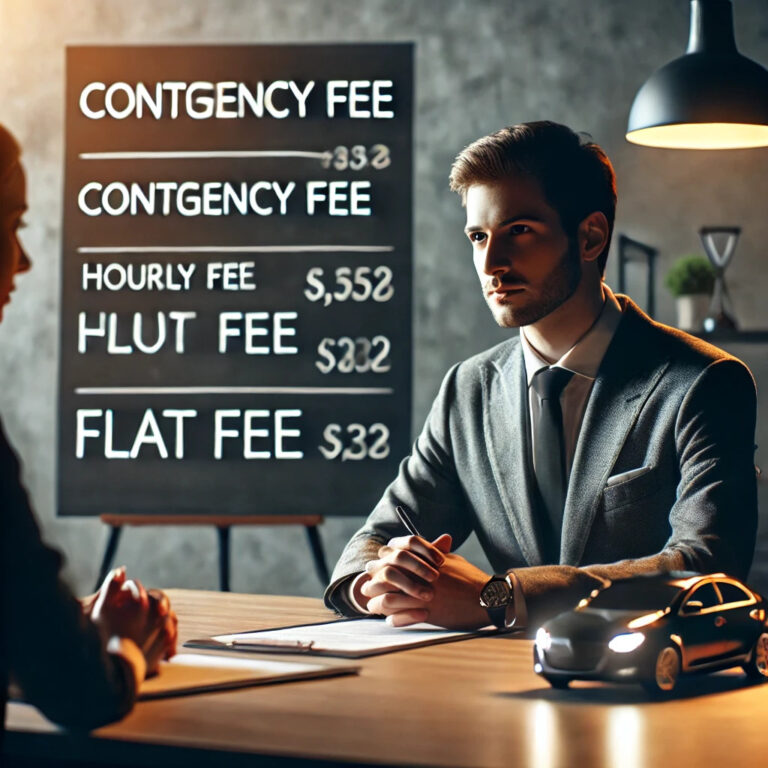Lawyer or attorneys practice in a variety of fields, including family law, commercial law, personal injury, criminal defense, and others.

What to Do After a Car Accident: A Friendly Guide from Personal Injury Lawyers
Imagine this scenario: you’re driving home after a long day, and suddenly—crash! Your heart races as you realize you’ve been in a car accident. The moment can be shocking, leaving you feeling disoriented and uncertain about what to do next. It’s important to know that you’re not alone; this guide from personal injury lawyers can help you navigate the aftermath of an accident.
1. Stay Calm and Ensure Safety First
After the initial shock, take a moment to breathe deeply. Your safety and the safety of others on the road come first. Check yourself and your passengers for injuries. If someone is hurt, immediately call 911 for medical assistance. If it’s safe, move your vehicle to the side of the road to avoid further accidents, and turn on your hazard lights to alert other drivers.
2. Call the Police
Even if the accident seems minor, it’s crucial to involve law enforcement. A police report provides an official account that can be critical for insurance claims and any potential legal proceedings. When the police arrive, share your account of the accident honestly but stick to the facts. Avoid speculating on fault—this will be determined later.
3. Gather Information Like a Pro
While waiting for the police, act like a detective. Exchange information with the other driver(s), including names, phone numbers, insurance details, license plate numbers, and driver’s license information.
Be sure to note the make and model of the vehicles involved. Taking photos of the scene is also essential. Capture images of the damage, the surrounding area, and any relevant traffic signs or signals. This documentation can be invaluable later on.
4. Seek Medical Attention
You might feel fine immediately after the accident, but it’s wise to get checked by a medical professional. Some injuries, such as whiplash or concussions, may not show symptoms right away.
Seeking medical attention ensures that any injuries are documented, which can be critical if you decide to file a personal injury claim later. Follow up on any treatment recommendations, and keep a detailed record of all medical visits and expenses.
Read More: Top 10 Qualities of a Great Personal Injury Lawyer
5. Notify Your Insurance Company
Once you’re safe and have sought medical care, contact your insurance company. Report the accident promptly, as many insurers have specific deadlines for reporting incidents. When discussing the accident, stick to the facts and avoid making statements about fault; that’s for the insurance adjusters to determine.
6. Document Everything
Organization is key. Create a dedicated file for all documents related to the accident. This should include medical records, repair estimates, police reports, photographs, and any correspondence with your insurance company. Keeping everything in one place will make it easier to access when needed, especially if you pursue a claim.
7. Be Cautious with Conversations
If you receive calls from the other driver’s insurance company, approach with caution. Their aim may be to minimize the payout or gather information that could harm your claim. Politely decline to provide any details, and refer them to your own insurance or your attorney. It’s essential to protect your rights during these conversations.
8. Consider Consulting a Personal Injury Lawyer
If your accident resulted in significant injuries, or if liability is disputed, it’s wise to consult a personal injury lawyer. They can offer valuable guidance through the complex legal landscape, ensuring your rights are protected. A skilled attorney can help you understand your options, negotiate with insurance companies, and represent you in court if necessary.
Real-Life Example: What Can Go Wrong
Consider the case of Driver A, who is involved in a minor collision while running errands. They feel shaken but decline medical attention at the scene. A few days later, Driver A developed severe headaches and neck pain.
When they approach their insurance company, they find that because they did not seek immediate medical care, the insurer questions whether their injuries are related to the accident. This situation underscores the importance of getting checked out promptly after any accident, even if you think you’re unscathed.
Key Takeaways
- Always prioritize safety and health following an accident.
- Gather as much information as possible and document the scene.
- Don’t hesitate to seek medical attention, even if you feel fine.
- Keep all documents organized and consult a lawyer if needed.
Conclusion: You’re Not Alone
The aftermath of a car accident can be overwhelming, but with the right information and support, you can navigate this challenging time. Remember, each step you take—whether ensuring safety, documenting the incident, or seeking legal advice—is vital for protecting yourself and your rights.
If you ever find yourself in a situation like this, know that help is available. Reach out to a personal injury lawyer in your area if you need assistance. By being proactive and informed, you can ensure that you get the support you need during this difficult time.










Pretty component of content. I just stumbled upon your site and in accession capital to claim that I acquire actually enjoyed account your blog posts. Anyway I’ll be subscribing in your augment or even I achievement you get admission to constantly fast.